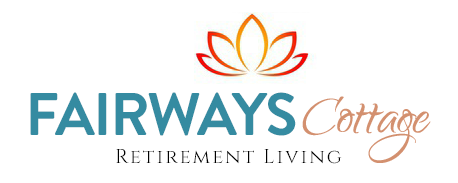Narcissistic Personality Disorder in Seniors
Have you ever tiptoed through a conversation with an aging parent, afraid that the wrong word might spark anger, criticism, or a long, icy silence? If so, you’re not alone. So many of us enter our loved one’s golden years expecting peace, soft wisdom, and a chance to reconnect—but instead, we find ourselves tangled in old patterns that haven’t softened with age. In fact, sometimes, they’ve gotten worse.
What you might be witnessing isn’t just a “strong personality” or someone who’s a little set in their ways. Sometimes, it’s something deeper. Something clinical. Something called Narcissistic Personality Disorder in seniors.
Now, I know that word—narcissist—gets thrown around a lot these days. But this isn’t about trendy labels or name-calling. This is about real families struggling behind closed doors. It’s about the adult children who leave visits feeling small and ashamed, the spouses who walk on eggshells, the caregivers who give and give until there’s nothing left.
Recognizing NPD in an elderly loved one doesn’t mean you stop loving them. It means you finally start understanding what you’re really dealing with. And once you have that clarity, you can begin to care differently—with clearer boundaries, more compassion for yourself, and the support you truly deserve.
So let’s take a deep breath together and explore this—what NPD looks like in older adults, how it affects those around them, and what you can do when love alone isn’t enough to make things better.
What Is Narcissistic Personality Disorder?
Narcissistic Personality Disorder (NPD) is a mental health condition marked by patterns of grandiosity, a constant need for admiration, and a lack of empathy for others. But behind that polished surface often lies a fragile self-esteem and an overwhelming fear of criticism or rejection.
People with NPD tend to believe they are special or unique and may expect others to treat them as such. They often exaggerate achievements, fish for compliments, and have difficulty accepting responsibility or seeing things from another’s point of view. In day-to-day relationships, this can look like manipulation, emotional outbursts, blame-shifting, or simply an unwillingness to acknowledge the feelings of others.
While NPD is most commonly diagnosed in early adulthood, it doesn’t just vanish with age. In fact, aging can intensify narcissistic traits, especially as seniors face the realities of retirement, physical decline, or loss of independence. For someone with NPD, these normal aspects of aging can feel like attacks on their self-worth—leading to increased irritability, withdrawal, or even hostility.
It’s important to understand: this is not just someone being “selfish” or “set in their ways.” NPD is a real and diagnosable condition. And for family members trying to care for a senior with these behaviors, that understanding can be the difference between burnout and boundary-setting.
Signs of NPD in Seniors: What to Look For
It’s easy to overlook the signs—especially when someone’s been like this your whole life. You brush it off. “That’s just Dad being Dad.” “She’s old, she’s earned the right.” But let me gently offer this: when someone’s behavior leaves you feeling small, tired, or twisted up inside—it’s worth paying attention.
Narcissistic Personality Disorder in seniors isn’t always loud. Sometimes it hides in plain sight. But if you’ve found yourself walking away from visits feeling drained instead of connected, that’s your heart waving a little flag. Let’s take a look at what might be going on.
1. The Conversation Magnet
Ever try to talk about your new job, a child’s birthday, or even the weather—only to have them reroute the entire conversation back to themselves? Every time? Seniors with NPD often crave the spotlight. And they’ll grab it, even if it means stepping over your joy to get there.
2. Missing in Emotional Action
You tell them you’re struggling, and they yawn. You cry, and they change the subject—or worse, say something like, “You think you have it hard?” It’s not just a lack of warmth. It’s like your pain doesn’t register unless it somehow benefits them.
3. The Guilt Game
A classic favorite. “I guess I don’t matter anymore.” “If I had raised you right, maybe you’d call more.” Sound familiar? It’s not just hurtful—it’s manipulative. And it leaves you questioning whether you’re the problem. Spoiler alert: you’re not.
4. Thin Skin, Big Reactions
Suggest they might have forgotten something? Disagree politely? You might as well have set off fireworks. Seniors with NPD don’t handle criticism well—even the helpful kind. Instead, they lash out, shut down, or serve you the cold shoulder for days.
5. Royal Treatment, Please
Whether it’s at the doctor’s office, in the family group chat, or at a restaurant, they expect to be treated like VIPs. Rules are for other people. If they don’t get their way, expect a scene—or at least a guilt-laden sigh and a dramatic exit.
6. Behind the Curtain: Fear and Insecurity
Here’s the twist most people don’t see: under all the bravado and bluster is usually a scared, aging person grappling with loss of control. Their identity is tied up in how they used to be—strong, admired, independent. So when life changes that, they cling tighter to the version of themselves that looked powerful.
But don’t let the backstory become your burden.
The presence of these traits doesn’t mean they’re “bad people.” It doesn’t mean you stop caring. It means you start caring clearly. You see the behavior for what it is. You stop blaming yourself. And you start asking, how do I care without being consumed?
Because, my dear, love without boundaries isn’t love—it’s martyrdom. And you deserve better than that.
Why NPD Can Worsen With Age
Aging is often described as a humbling process—but for someone with Narcissistic Personality Disorder, it can feel more like a slow, steady loss of everything they’ve built their identity on.
Imagine spending a lifetime believing that your worth comes from your accomplishments, appearance, independence, or authority—and then one by one, those things start to slip away. Retirement, physical decline, memory loss, and even shifts in family roles (like adult children becoming caregivers) can all feel like personal threats to a narcissistic senior’s fragile self-image.
Here’s why NPD may become more pronounced in later life:
1. Loss of Control or Status
Seniors with NPD often struggle with retirement or reduced social influence. Without the career, income, or authority that once reinforced their sense of superiority, they may lash out or spiral into emotional instability.
2. Increased Isolation
As peers pass away or family ties grow strained, narcissistic individuals may find themselves more isolated—which often leads to a worsening of symptoms. With fewer people around to mirror back admiration or validation, the internal emptiness deepens.
3. Physical and Cognitive Decline
Chronic illness, limited mobility, or memory issues can be deeply threatening for someone who’s always prided themselves on self-sufficiency. Instead of accepting help with grace, they may deny problems, reject assistance, or blame others for their limitations.
4. Dependence on Family or Caregivers
Needing others for help—whether it’s with driving, finances, or basic tasks—can trigger intense defensiveness or hostility. Many narcissistic seniors resent this shift in power and try to reclaim control through manipulation or passive aggression.
5. Resistance to Therapy or Insight
Older adults with NPD often resist psychological help, insisting that the problem lies with everyone else. Even when therapy is available, it’s rare for someone with this disorder to seek it out voluntarily or engage in genuine self-reflection.
All of this creates a perfect storm for family caregivers. You may be trying to help out of love and duty, only to be met with criticism, suspicion, or outright hostility. It’s okay to admit that this is hard. And it’s even more okay to seek support—for them and for yourself.
The Impact on Family and Caregivers
Let’s be honest—caring for someone with Narcissistic Personality Disorder is one of the most emotionally complex roles you can find yourself in. Especially when that someone is your mother, father, spouse, or a cherished elder who once held your hand when you were the one who needed help.
Now, the roles are reversed. But instead of tenderness and connection, you might find yourself caught in a cycle of blame, manipulation, and emotional wear-and-tear. And I want you to hear this loud and clear: what you’re feeling is real, and it’s valid.
Here’s what this journey often looks like for those of us on the front lines:
1. Emotional Whiplash
One moment, they might be charming or needy, and the next, cruel or dismissive. It’s like riding an emotional rollercoaster you never asked to board. Over time, that unpredictability chips away at your confidence, your clarity, and your sense of peace.
2. Guilt That Lingers Like a Fog
Narcissistic seniors are masters at turning the tables—leaving you feeling like the bad guy for setting boundaries or needing space. “You’ve abandoned me.” “You only care about yourself.” Those words cut deep, especially when all you’ve done is show up—again and again.
3. Family Tensions That Run Deep
Maybe your sibling doesn’t see the narcissism. Maybe they do—but refuse to deal with it. Narcissistic parents often pit their children against each other, and the fallout can last for decades. If you’re the “responsible one,” you may be carrying more than your fair share—emotionally, financially, logistically.
4. The Toll on Your Health
You may be so focused on caring for them that you forget to eat, rest, or exhale. But chronic stress doesn’t just weigh on the heart—it wears down the body. Headaches, insomnia, irritability, even physical illness can creep in. Burnout is real, and when the person you’re caring for also wounds you emotionally, the impact runs deeper.
5. The Ghost of Old Patterns
If this person has always made you feel “not enough,” those childhood wounds don’t just vanish. They echo in your adult choices—how much you give, how little you ask for, how hard you try to make it all okay. Saying “no” may feel like betrayal, even when it’s the most loving choice you can make.
Here’s what I want to wrap around your heart like a soft shawl: you are not failing. You’re navigating something incredibly difficult with more grace than you probably give yourself credit for.
Caring for someone with NPD doesn’t mean sacrificing your sanity or losing your sense of self. It means learning how to care in ways that are safe, realistic, and kind to you, too. And that’s not selfish—it’s wisdom in action.
Setting Healthy Boundaries Without Guilt
Let me tell you something from one caregiver to another—setting boundaries is not a betrayal. It’s an act of love. Not just for the person you’re trying to care for, but for you, too.
I know it’s hard. Maybe you were raised to “respect your elders,” to “be the bigger person,” to give until it hurts. But here’s the truth: if you keep giving without limit, you’re the one who disappears.
So how do you draw the line without drowning in guilt?
Start by letting go of the fantasy.
If you’ve spent years hoping they’ll finally say “I’m proud of you” or “I’m sorry,” that hope can be its own kind of trap. Narcissistic behaviors often get more rigid with age, not less. It’s not your job to fix that. What is your job? Protecting your peace.
Be lovingly clear.
Say what you mean, and mean what you say. “I can come by this weekend, but only for an hour.” “I won’t stay on the call if I’m being yelled at.” You don’t need a big explanation. Just be firm, calm, and kind. That’s your power.
Stick to your word, even when it’s hard.
They might escalate. They might sulk. They might lay on the guilt. That doesn’t mean you’ve done something wrong—it means your boundary is working.
And please, take care of you.
Go for a walk. Sit in silence. See your own therapist. Say no sometimes. You are not selfish for needing space. You are a whole person with needs, dreams, and limits. Let those matter, too.
Boundaries aren’t about shutting people out. They’re about showing up in ways that are sustainable. They say, “I care—but I won’t lose myself in the process.”
And that, dear heart, is not just okay—it’s beautifully necessary.
Getting Support: Therapy, Resources, and Community
If this journey feels heavy, that’s because it is. You’re doing one of the hardest jobs there is: caring for someone who may not even know how to care for you in return.
But listen to me—you don’t have to carry this alone. You were never meant to.
Talk to someone who’s trained to help.
A good therapist can hold space for the complex emotions swirling inside you: anger, sadness, guilt, even love. They can help you untangle the past so you can breathe a little easier in the present. Therapy isn’t just for crisis—it’s for clarity, too.
Find your people.
Online forums, caregiver groups, even local support circles can be powerful lifelines. There’s something healing about being seen and heard by people who understand. The late-night venting, the bittersweet humor, the shared sighs of “me too”—these are small miracles in hard seasons.
Read and learn.
You’re not the first to face this, and you won’t be the last. Books like Will I Ever Be Good Enough? can open your eyes to things you’ve silently endured for decades. Knowledge won’t fix everything, but it can help you stop blaming yourself.
Take real breaks—guilt-free.
Respite care exists for a reason. You’re not abandoning anyone by stepping away. You’re preserving the part of yourself that can keep going. Rest is not a reward. It’s a right.
And when the legal or financial side gets messy?
There are elder care lawyers, financial advisors, and advocates who can help sort through the red tape. You don’t have to play every role—nurse, banker, therapist, peacekeeper—on your own.
Let me say this clearly: You matter. Your mental health matters. Your dreams matter. You are more than someone’s caretaker—you are someone’s child, someone’s friend, someone’s self.
And you deserve support that sees all of you.
Conclusion: You’re Doing Better Than You Think
If you’ve made it this far, reading about Narcissistic Personality Disorder in seniors and nodding along with weary recognition—I see you. I really do.
You’re not imagining it.
You’re not being too sensitive.
And no, you’re not a bad person for feeling frustrated, angry, or worn down.
Loving someone with NPD, especially in their later years, can feel like loving a storm. One minute calm, the next unpredictable. And all the while, you’re the one standing there trying to anchor the ship.
But here’s what I want you to remember: you are allowed to take care of yourself, even if the person you’re caring for doesn’t understand or appreciate it. You are allowed to say, “this is too much.” You are allowed to want peace.
You’re not weak for needing boundaries. You’re wise.
You’re not heartless for needing space. You’re human.
And you’re not alone. Ever.
Whatever brought you here today—grief, guilt, confusion, exhaustion—I hope this gave you a little light. A little language. A little permission to protect the tender, strong, resilient person you are.
Because you’re doing better than you think.
And you are not in this alone.







